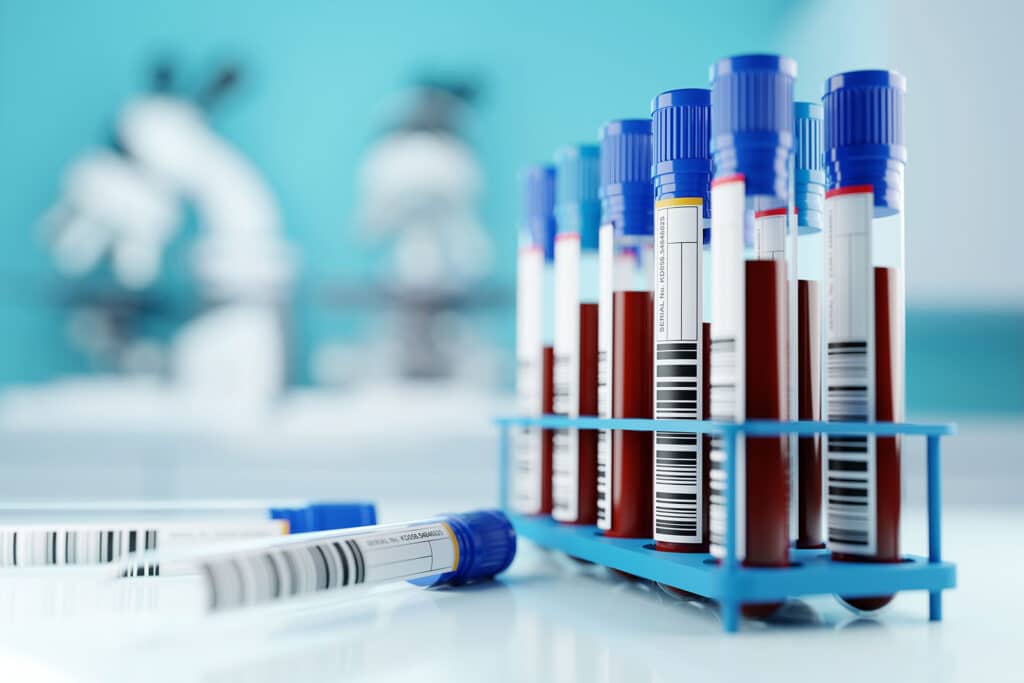When considering the use of a powerful substance like lysergic acid diethylamide (LSD), one of the most common concerns is the effects of LSD on both the body and mind, especially in terms of its long-term impacts. As a potent psychedelic, LSD is renowned for its ability to alter mental states and perceptions, yet questions often arise about its interaction with the body over time and its potential impact on mental health.
A prevalent warning about LSD is its supposed permanence in the spinal fluid, sometimes known as “acid stay,” leading to concerns about residual effects and long-lasting impacts on the spinal cord. But is there any truth to these claims? It’s crucial to differentiate fact from fiction to better protect oneself and loved ones against the potential consequences of substance abuse.
The presence of LSD metabolites in the body and the length of time they remain detectable can affect various drug tests, including urine tests, blood tests, and hair tests. Understanding these aspects is key to ensuring proper healthcare and addiction treatment if necessary. Additionally, unraveling misconceptions about the relationship between LSD and the spinal cord can help prevent misinformation and highlight the importance of detox and managing potential side effects like psychosis, alterations in serotonin levels, and shifts in body temperature.
Table of Contents
So, does LSD Stay in the Spinal Fluid?
No, LSD does not stay in the spinal fluid.
This is a myth. LSD is metabolized primarily in the liver and eliminated from the body within 24 hours. There is no scientific evidence that LSD accumulates or remains dormant in the spinal fluid or brain tissue. However, some users experience flashbacks (HPPD), which are psychological and not due to stored LSD in the body.
Understanding LSD and your Body
Drugs can linger in the body through various mechanisms. While some substances, like marijuana, can be detected in hair for months after use, LSD is metabolized and excreted relatively quickly, typically within 24 hours. Because it’s often taken in relatively low doses (measured in micrograms), standard drug tests frequently fail to detect its presence.
However, specialized tests designed to detect LSD can reliably identify it in blood and urine within hours of ingestion. In urine, LSD may be detectable for up to a few days.
Several factors influence how quickly the body processes LSD, including weight, age, dosage, and liver function. Impaired liver function can slow down the breakdown of LSD.
But what about spinal fluid? The idea that LSD remains in the spinal fluid indefinitely is a myth. While LSD can produce powerful effects on the nervous system, including visual hallucinations, it does not become a permanent fixture in the cerebrospinal fluid. Like other substances, LSD interacts with receptors in the brain, but it is not stored there long-term. It is also worth noting that, unlike some substances, LSD is water-soluble, which influences how it’s processed and eliminated by the body. There is no evidence to suggest that LSD addiction develops in the same way as addiction to other substances. Although it is sometimes used as a recreational drug, its effects are unpredictable, and its use carries risks. This is also true of other hallucinogens, such as psilocybin. While the half-life of LSD is relatively short, the long-term effects of its use, particularly in high or frequent doses, are still being studied.
LSD Detection Times
| Test Type | Detection Time |
| Urine Test | Up to 3 days |
| Blood Test | Up to 12 hours |
| Saliva Test | Up to 8 hours |
| Hair Follicle Test | Up to 90 days (rarely tested) |

The Connection to Hallucinogen Persisting Perception Disorder
HPPD is one reason the spinal fluid myth may have come about. Although the disorder is rare, it’s an example of how abusing hallucinogens can lead to issues that last longer than a single drug trip.
With HPPD, people continue to see certain distorting or unpleasant visual effects after they stop using LSD or other hallucinogens. A common effect is to see halos appear around objects or to perceive distortions in size and color. People may also be afflicted by bright lights that don’t fade in intensity.
HPPD may resolve on its own within days or weeks. Other times, it lasts for months or years. More research is needed to understand why some people develop HPPD and whether it’s connected to the length of hallucinogen use, interactions with other drugs, and the presence of certain medical or psychological conditions.
However, there’s no evidence that HPPD comes about because of LSD staying in the spinal fluid.
Other Issues With LSD
Although LSD isn’t considered an addictive drug, people may still wind up using it frequently to chase after the mental experiences it provides. When people have a good experience with an LSD trip, they report positive feelings and a sense that their minds have expanded. However, the outcome of a trip isn’t reliable, and it may become a nightmare.
A bad trip can produce nightmarish visual effects and powerful negative emotions. The panic and confusion can become intense, and some users continue to suffer flashbacks from a bad trip after the drug has worn off. The changes in mood and perception may interact in unpredictable ways with existing psychological problems.
Like other hallucinogens, LSD can also endanger your life by impairing your judgment and making you unaware of risks in your environment. In an altered mental state, you may fail to judge distances, tell how much time has passed, or identify harmful objects or situations.
Although LSD doesn’t linger in your body, it does lead to short-term physiological changes that may be unpleasant, including nausea, excessive sweating, and tremors. It also increases heart rate and blood pressure, though usually not to the same extent as other drugs, such as cocaine. Generally, the main concerns people have with LSD involve its psychological effects.
Side Effects of LSD (Lysergic Acid Diethylamide)
LSD is a potent hallucinogenic drug that affects perception, emotions, and cognition. Its effects can be unpredictable, varying based on dosage, individual physiology, and environment. Side effects can be divided into short-term and long-term categories.
Short-Term Side Effects
These effects typically begin within 30-60 minutes of ingestion and can last 6-12 hours:
Psychological Effects:
- Intense hallucinations (visual and auditory)
- Altered perception of time and reality
- Mood swings (euphoria, anxiety, paranoia)
- Suspiciousness or delusions
- Impaired judgment and decision-making
- Psychosocial distress in high doses (panic attacks, psychotic episodes)
- Synesthesia (mixing of senses, e.g., “seeing” sounds or “hearing” colors)

Physical Effects:
- Increased heart rate and blood pressure
- Dilated pupils
- Sweating or chills
- Nausea
- Tremors
- Dry mouth
Long-Term Side Effects
Psychiatric Effects:
- Flashbacks (Hallucinogen Persisting Perception Disorder – HPPD)
- Recurring hallucinations days or weeks after use
- Persistent psychosis (rare but possible in vulnerable individuals)
- Schizoaffective-like symptoms in some users
- Depression or anxiety disorders
Cognitive Effects:
- Impaired memory and concentration
- Confusion or difficulty distinguishing reality from hallucinations
Risk Factors
- Individuals with a family history of schizophrenia or mental illness are at higher risk of severe psychiatric reactions.
- Young adults and young people experimenting with LSD may be more prone to negative psychological effects.
- Polysubstance use, especially with cannabis, may intensify hallucinations and paranoia.
LSD is not physically addictive, but psychological dependence can develop in habitual users. If someone experiences psychosis or severe anxiety after using LSD, psychiatric support may be necessary.

Do You Need Help With LSD Abuse?
When people think of drug abuse, LSD typically doesn’t come to mind, not in the way that alcohol, opioids, or other drugs do. However, it’s still possible for LSD use to become problematic or abusive, interfering with your life in damaging ways, so taking drug rehab is a must.
Is taking LSD hurting your ability to commit to a job, go to school, maintain healthy relationships, or enjoy other activities? Are you experiencing various negative effects on your mood or perceptions? Along with some of the effects already mentioned, it’s possible that you’re suffering from impairments in attention, memory, motivation, or physical effects.
Additional complications can arise if you’re using LSD simultaneously with other drugs. Your current physical and psychological health will also determine how the frequent use or abuse of LSD affects you.
Don’t hesitate to reach out to us for professional guidance, treatment center, and treatment options for substance use. Even if you don’t think you’re suffering from addiction or abuse, you may still benefit from discussing your drug use and its effects on your life.
LSD may not be as dangerous as other drugs, such as highly addictive opioids, and it doesn’t linger in your spinal fluid or other parts of your body. However, it can still cause or exacerbate various problems. Instead of struggling on your own, talk to professionals who will treat you as an individual and work to meet your specific needs.
FAQ
How long does LSD stay in your system?


